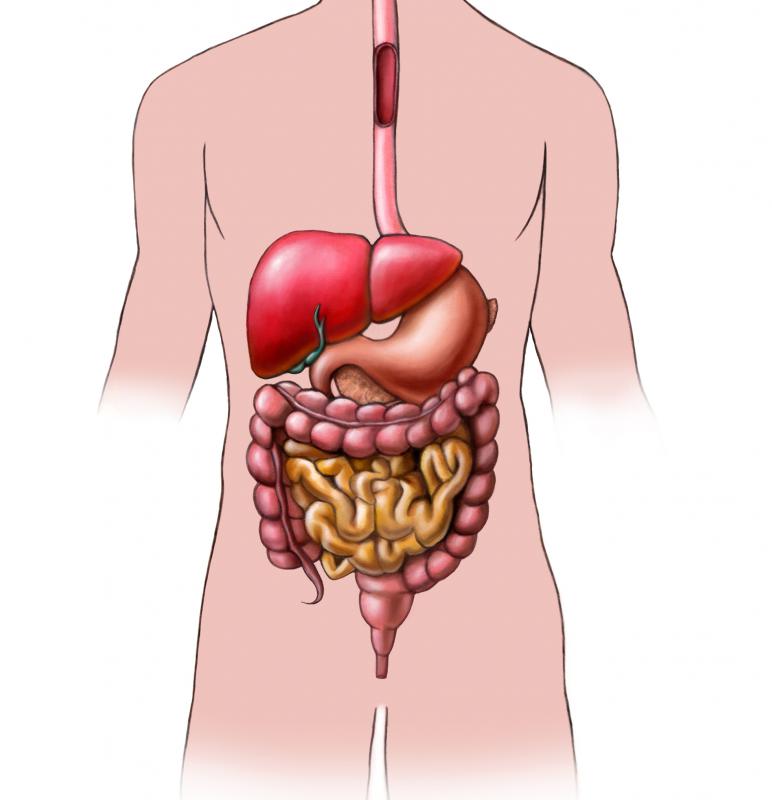At WiseGEEK, we're committed to delivering accurate, trustworthy information. Our expert-authored content is rigorously fact-checked and sourced from credible authorities. Discover how we uphold the highest standards in providing you with reliable knowledge.
What is Digestive Medicine?
Digestive medicine is a collective term for the several different medical disciplines that address health issues related to the gastrointestinal tract. Any procedure or practice that is connected with treating parts of the body from the mouth to the anus can be considered part of this broad category. Within the field of digestive medicine, health care professionals often choose specialties that allow them to focus on a given section of the overall digestive system.
In some cases, other organs may also be considered within the scope of digestive medicine. For example, the pancreas and liver are often included in this field of medical expertise. The bile ducts and the gallbladder are also often considered important to the study of digestive disorders.

Perhaps the most easily recognized practitioners of digestive medicine are known as gastroenterologists. Health professionals who pursue this specialty of medicine undergo a rigid education and training process. Along with the eight years of premedical and medical training that is required of most doctors, the gastroenterologist will also undergo a year long internship, then spend an additional three years as a resident of internal medicine. After that, the new specialist will begin a two-year residency that is directly related to gastroenterology.

Within the broad range of digestive medicine, it is possible to practice in several different ways. Some specialists prefer to limit their practice to diagnosing and attempting to heal people suffering with various types of digestive problems. This may be accomplished by specializing in particular surgical procedures, or using other methods to bring about healing. A health professional taking this hands on approach may work exclusively in a hospital setting, or also maintain a private practice.
There is another important approach to digestive medicine. Rather than focusing on utilizing current tools and strategies to treat people who are dealing with some type of digestion problems, the health care professional may choose to focus on research. This approach is extremely important to the process of advancing the efficacy and scope of treatment related to the practice of gastroenterology. Without the work of dedicated researchers, many of the techniques and medications in common use today would never have been developed, leaving many people to suffer through a great deal of unnecessary pain.
As with most forms of modern medicine, digestive medicine is not a static healing technique. Ongoing research helps to bring about new ways to diagnose and deal with various types of digestive disorders each year. For people who deal with the pain associated with some part of the gastrointestinal tract, this ongoing evolution means that the origin of their pain is identified sooner, and the treatments that follow are likely to ease the discomfort and restore health in less time, and with fewer side effects.
AS FEATURED ON:
AS FEATURED ON:












Discussion Comments
Digestive medicine is called gastroenterology, but like the article said, different doctors have different specializations depending on which part of the digestive system they treat.
For example, the doctor my grandfather saw for colon cancer was a colorectal specialist. He treated only problems relating to the colon and rectum.
@ZipLine-- Yes, gastroenterologists can check for food intolerances by considering your symptoms and he or she can also run some basic allergy tests. The doctor may also recommend a food elimination diet where some foods are eliminated from the diet for a certain period of time to see if there is a reduction in symptoms.
There is also a doctor, called an allergist, that can diagnose and treat food intolerance and food allergies. A gastroenterologist may send a patient to an allergist in certain cases.
Are gastroenterologists the ones who diagnose food intolerances?
Post your comments